November 15, 2019
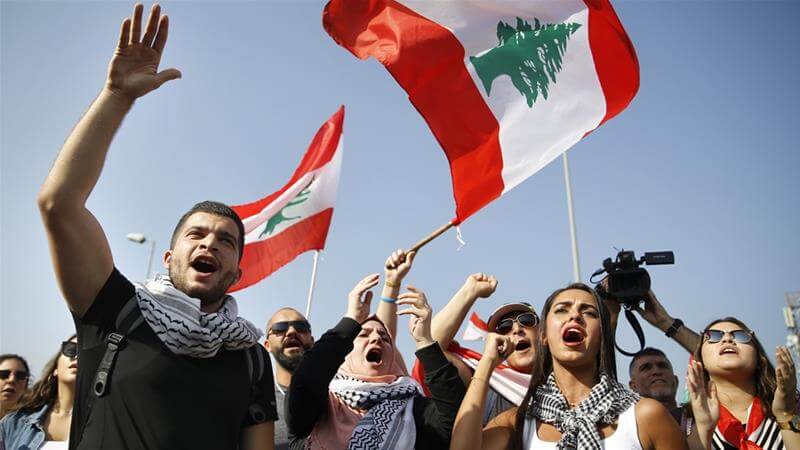
Weekly Report 15 November, 2019

On Thursday, the International Criminal Court (ICC) has approved an investigation into Myanmar’s mistreatment of the Rohingya minority ethnic group. ICC judges have backed a prosecution request to investigate allegations of crimes against humanity committed in Myanmar’s 2017 military crackdown against the Rohingya. The investigation approval came on the heels of a case against Aung San Suu Kyi, Myanmar’s de-facto civilian leader, who was named in an Argentine lawsuit over crimes against the Rohingya, while Myanmar faced a separate genocide lawsuit at the United Nation’s top court. Though Myanmar is not a member of the ICC, the Hague ruled last year that it has jurisdiction over crimes against the Rohingya minority because Bangladesh, where they are now refugees, is a member. Myanmar has long denied accusations it committed ethnic cleansing or genocide.

The Cambodian Prime Minister, Hun Sen, has ordered the release of 70 opposition activists amongst rising tensions with trade partners. Hun Sen has been in power for 34 years and has received criticism from the international community for human rights abuses and the erasure of free speech; the European Union’s threat to withdraw trade benefits likely prompted the release of opposition activists. Additionally troubling the Hun Sen administration is opposition leader Sam Rainsy; Rainsy recently called for a peaceful uprising by the people of Cambodia and urged military forces not to shoot at protestors. Rainsy went on to criticize Hun Sen’s alleged deal with Beijing that allows a Chinese military base in the country, saying “Cambodia must be neutral”.
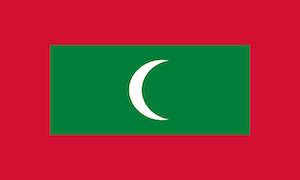
On Thursday, the Maldivian government released a statement strongly condemning Israel’s airstrikes against the Palestinian-held territory of Gaza. Resulting in the deaths of at least 34 Palestinians, the airstrikes were deemed as a disproportionate use of force against unarmed civilians, including women and children. The administration and the Maldivian people expressed sincere condolences to the families of the victims of Israeli aggression in Gaza. The official statement also encouraged efforts by the international community, particularly Egypt, to de-escalate the situation.
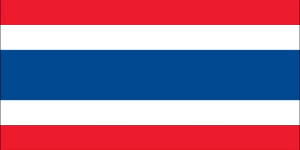
On Thursday, a French tourist was killed in Thailand while taking photos next to Na Mueang 2 waterfall on the tropical island of Koh Samui. The 33-year-old man fell from the same spot where a Spanish tourist died in a fall in July, Lieutenant Phuvadol Viriyavarangkul of the island’s tourist police told the press. Thailand’s tourist industry has taken several recent hits due to lax safety regulations, causing authorities to scramble to restore the country’s image in 2019.
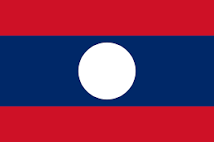
The UN Environment Programme announced this week that the Green Climate Fund has approved to donate $10 million USD to a project in Laos. The project intends to use climate-friendly measures to make urban areas more resilient against flooding. Laos’ project has been named one aspect of a “paradigm shift” in the region that focuses on creating green infrastructure. The project will target the four cities in Laos considered to be the most vulnerable to climate change and aims to restore wetlands that are home to endangered species.

On Friday, a Vietnamese court sentenced a college music teacher to 11 years in prison for posting content to Facebook that was deemed “anti-state”. Nguyen Nang Tinh, 43, denied the allegations of “making and spreading anti-state information and materials”, and that the account did not belong to him. Tinh’s trial lasted for one day at the People’s Court in the northern-central province of Nghe An. In police custody since May, Tinh is required to be placed under house arrest for five years after serving his jail term. The intolerance of the Vietnamese government has sharply risen this year, with Vietnam listed as 176th out of 180 countries on the 2019 World Press Freedom Index.
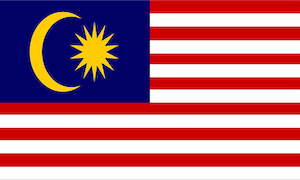
This Monday, a Malaysian court ruled that former Prime Minister Najib Razak must “defend himself” in seven charges that have been brought against him. These charges circulate around the $4.5 billion taken from the 1Malaysia Development Berhad (1MDB). The prosecution’s case is said to have“overwhelming evidence” against Najib, including 57 witnesses. For each charge Najib is found guilty, he will face 15-20 years and be forced to pay large fines. Currently, Najib is out on bail and his trail commences in less than one month on the 3rd of December.

This Thursday, South Korea announced that they deported 2 North Korean men. The decision to deport these men back to their home country came after discovering the men were responsible for murdering “16 crew members on their fishing boat before fleeing to the South.” The South Korean government shared that if the men “had been incorporated into [their] society, it was judged they would pose a threat to the lives and safety of the people.”
Approximately 30,000 North Koreans have fled to South Korea since the division of the two countries. Usually these defectors are interrogated, undergo a 3 month re-education period, and then free to integrate into South Korean society. The deported men, however, have been declared unfit for integration after their 3 day interrogation period. These men are the first asylum seekers to be deported back to North Korea since the end of the Korean War.

Universities have become the grounds for protest camps in Hong Kong, leading to the closure of several major institutions. Protestors have created barricades to stop police from entering the universities and have begun to stockpile supplies. The move to campuses takes place during a time of heightening tensions between the Chinese government and protesting Hong Kongers; Beijing recently released a statement warning protestors that they “are on the edge of doom”. An escalation in violence has also taken place during the past week, leading to the shooting of a protestor and the burning of a pro-China counter-protestor.
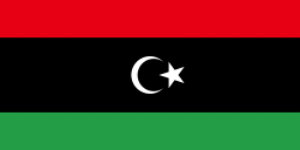
This week, an Al Jazeera investigation revealed that arms support for military leader Khalifa Haftar was provided by Egypt, Russia and the UAE. Khalifa Haftar is a military commander who has “waged a months-long offensive against the UN-recognized Tripoli-based Government of National Accord (GNA).” The investigation further revealed that military supplies reach Haftar through Libya’s border with Egypt. The GNA maintains that while they have never resorted to the illegal purchasing of weapons like Haftar has been proven to do, they still do not “receive any real support from any of [their] allies.” The GNA fears that continued illegal military support for Haftar may further jeopardize the GNA.

Sudan’s health system continues to deteriorate as a result of decades of conflict and unstable governance. According to the World Health Organization, more than 35% of Sudan’s population of 40 million people live in areas far from adequate health facilities, due to the destruction of health facilities throughout the country’s conflict, and 20 years of sanctions against Sudan. At present, less than 10% of government funds are directed towards healthcare. Due to the lack of adequate funding for payrolls, government hospitals are severely understaffed, depriving those who cannot afford private facilities of healthcare. Since the transitional government took control in August, the country has been suffering from Malaria, Cholera and Dengue fever epidemics. Since September, at least 300 cases of Cholera have been reported, including 10 fatalities. In November, over 90 people suffering from Dengue fever were received daily in hospitals across Khartoum.

On Friday, Iran’s Supreme Leader Ayatollah Khameni spoke at the International Conference on Islamic Unity, and stated that Tehran is not calling for the “disappearance of Jewish people,” and that people of all religions should decide Israel’s future. Though the leader routinely mentions the disappearance of the State of Israel, he emphasized that this does “not mean the disappearance of the Jewish people”, but the “Zionist regime”. The Ayatollah noted that “the people of Palestine – be they Muslim, Christian or Jewish – should choose their own government” if the State of Israel disappears, and encouraged citizens to “oust people like Netanyahu”. Khameni also stated that “we are not antisemitic”, and that “Jews live in Iran safely”.
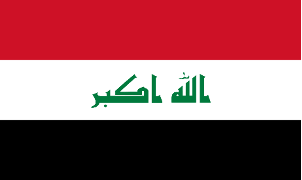
Protests in Iraq have continued despite extremely violent measures taken by government-led security forces. Protestors have taken over Tahrir Square, routing electricity and providing water, food and health services to those in the encampment. In an effort to disperse demonstrators, security forces used rubber bullets, live rounds and tear gas, which wounded at least 50 and killed at least 3. Additionally concerning was the targeting of medical workers by government forces; the Human Rights Watch released a statement condemning military personnel for shooting at medic tents and attacking medics treating protestors.

As the ceasefire between Syrian and Turkish forces remains volatile, Russian forces have established a new stronghold in the city of Qamishli in northern Syria. Resulting in the deaths of 5 teenagers, explosions in Qamishli this week prompted Russian forces to enter and establish security. The U.S. military has officially withdrawn from the nearby Kobani military base, which previously served as its main logistics hub. However, hundreds of U.S. troops still remain in the region.

This Tuesday, one protester was shot and killed by a Lebanese soldier. The soldier was aiming to disperse a crowd that was blocking a road leading to the capitol. This is the first killing in over a month of nationwide protests. The protesters are aiming for the complete restructure of the Lebanese political system. Many believe that this death will reenergize protests and give way for more unrest.

Zimbabwe has banned the installation of electric water heaters due to a national electricity shortage. The country has been suffering from widespread electricity cuts, as well as a severe drought and economic crisis. Extremely high rates of inflation have halted the daily lives of Zimbabweans, who can no longer afford solar alternatives and are left without electricity. The draught in the region has also caused the deaths of hundreds of elephants, leading Zimbabwe to start moving starving animals in hopes of saving them. This week, the Zimbabwean government put the Zimbabwe dollar back into circulation in an attempt to remedy the disastrous inflation rates that have plagued Zimbabwe’s economy.

Cuba announced that their country has attracted a total of 1.7 billion US dollars this year in foreign investment, despite worsening US sanctions and trade embargoes. The $1.7 billion in foreign investment falls short of their $2 billion goal, however it still is a significant accomplishment. Foreign investment is much needed in Cuba, especially in the wake of declining subsidies caused by their key ally Venezuela facing an intensified crisis.

Hugo Carvajal, the Venezuelan head of military counter-intelligence from July 2004 until December 2011 under the Hugo Chávez administration, disappeared this week after a Spanish court ruled that he should be extradited to the US, where he is accused of drug trafficking. Spanish police have not been able to locate Carvajal since Friday. In 2011, U.S. prosecutors accused Carvajal of personally coordinating a US-bound shipments of more than five tonnes of cocaine from Venezuela to Mexico, and alleged that he was personally connected to Colombia’s Marxist Farc rebels. Carvajal has repeatedly denied having any associations with drug traffickers or the Farc.
According to a United Nations special envoy, many Venezuelan refugees fleeing their countries disastrous economic crisis and political turmoil are increasingly unlikely to return. On Wednesday, Eduardo Stein told The Associated Press that the exodus of over 4.6 million Venezuelans has now permanently changed Latin America and that even with immediate resolution, many Venezuelans would likely stay abroad.

The National Bank of Nicaragua has halted the publication of national inflation rates. The organization has additionally stopped publishing the numbers for the basic basket, which outlines the average prices of basic goods. The halt in publishing was not announced by the National Bank, and was instead noticed by media sources. The statistical blackout is worrying and gives analysts no information for calculating market indicators and overall economic trends.

Following the resignation of Bolivian President Evo Morales on Sunday, the country has devolved into turmoil as protestors for and against Morales flood the streets of La Paz and surrounding communities. On Tuesday, Jeanine Áñez declared herself interim leader in accordance with the constitutional succession. Morales, leftwing and from the indigenous community, fled to Mexico once granted asylum on Tuesday after the military urged him to quit. Supporters of Morales continue to protest against what they say is a military coup, and against Áñez as interim president. Though Áñez has vowed to reconstruct democracy and hold elections within the 90 days allotted by Bolivia’s constitution, the new cabinet she unveiled this week is void of indigenous representation, which has further polarized supporters of her predecessor.
The United Nations has sent a special envoy to Bolivia in response to an appeal from Evo Morales for foreign intervention. UN Secretary-General Antonio Guterres asked Jean Arnault to engage, as his personal envoy, with all Bolivian actors and offer United Nations support in efforts to “find a peaceful resolution to the crisis, including through transparent, inclusive and credible elections,” spokesman Stephane Dujarric told reporters in New York. Arnault has previously served as special representative for Colombia, Georgia and Afghanistan.
Two people have been killed in clashes between Bolivian police and supporters of Morales on Wednesday. The violence came after pro-Morales protestors launched a campaign that included marches and roadblocks.
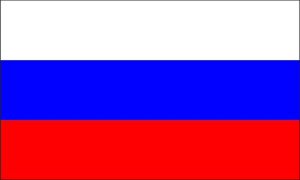
This week, Turkish President Erdogan met with US President Donald Trump to discuss diplomatic and military relations. The two NATO allies suffered strained relations after Turkey accepted Russian-made- S-400 missiles earlier this July. During the meeting, President Trump pressured Erdogan to comply with US and NATO demands. Trump also tweeted that if Turkey did anything “off limits” to the Kurds in Syria, he would “obliterate” the Turkish economy. Erdogan responded and shared that Turkey’s “transactional relationship with Russia currently trumps adhering to US demands.” Russia seems to have strengthened its foothold in the region in the wake of weakened American influence.

Public impeachment hearings against President Trump were televised this Wednesday. George Kent, a senior State Department official in charge of Ukraine policy, and William Taylor, the top United States diplomat in Ukraine, testified about Trump’s campaign to pressure Ukraine to investigate former Vice President Joseph Biden, one of his leading political rivals. The officials revealed new evidence of collusion between President Trump and Ukrainian officials in exchange for needed military aid. Despite the evidence of collusion, Trump is unlikely to be removed from office as it would require a two-thirds majority of the senate, which is controlled by the Republican Party. The Democratic party moves forward with the impeachment process in the hopes of damaging Trump’s bid for the 2020 election, regardless of his removal from office.